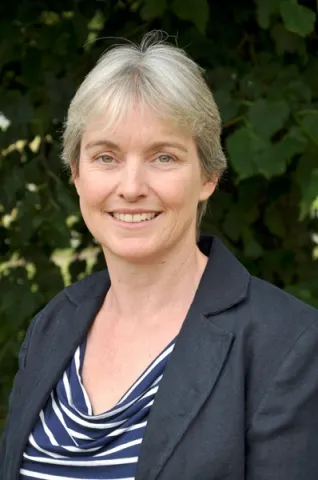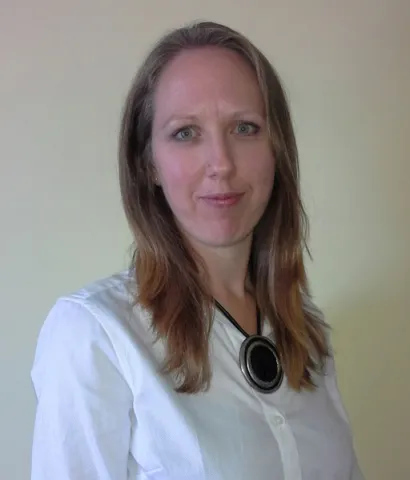Project overview
We want to find out whether a tablet called amitriptyline helps people with irritable bowel syndrome (IBS). Amitriptyline will be prescribed by a GP, at a low dose, when other treatments (e.g. changes to diet) have not worked. We are interested in its effect on both the symptoms of IBS and costs of managing it.
Background:
About 1 in 10 people report on-going tummy pain or bloating and changes in bowel habit. These are typical symptoms of IBS. IBS is a long-term condition. It causes discomfort and distress, reducing people’s quality of life. There is no cure and it can be difficult to treat. IBS is also expensive, because people often visit their GP, take time off work, or need to see specialists. Amitriptyline can be used to treat IBS at a low dose. Amitriptyline is also used in higher doses to treat depression. We believe it helps with IBS because it relieves pain and changes bowel activity, rather than because it affects mood. Small studies of amitriptyline have shown promising results and guidelines suggest trying it when people with IBS have ongoing symptoms. We are unsure whether the drug benefits people with IBS who are looked after by their GP, as there has been no large study.
The research:
GPs will invite people who have tried other treatments (such as fibre supplements or anti-spasm tablets), but still have IBS symptoms, to take part. We will check that people are suitable by doing a telephone questionnaire and blood tests at their GP practice.
People will be given either amitriptyline or dummy (placebo) tablets. A computer will randomly decide who gets which tablets. People will be asked to take the tablets for 6 months, in addition to their GP’s usual treatment for IBS. They will also get an advice sheet about the role of diet in IBS. People will not be aware which treatment they get.
After 6 months participants will be able to continue the treatment, if they wish. We will follow people up at 12 weeks, and 6 and 12 months. We will ask people to fill out questionnaires about their IBS symptoms, mood, and, quality of life. We will look at how many prescriptions for other drugs have been given to people, and how many tests or referrals have been asked for by their GP. We will also record any side effects and problems during treatment. As we will need over 500 people, the study will take place across 75 UK general practices. We will also interview participants and GPs about their experience of being in the trial.
Patient and public involvement:
We have involved patients in the development of this grant application. Specifically, we have a co-applicant with experience of IBS, and have worked with an IBS support group. We will continue to collaborate closely with both if the study is funded.
The team:
We are a team of doctors, researchers, and patients. Together we have expertise in IBS, long-term conditions, and carrying out similar research studies. The research will be run by a clinical trials research unit with experience in carrying out large scale studies.
University of Southampton: Co-CI Professor Hazel Everitt, Felicity BishopUniversity of Leeds: Co-CI Professor Alexander Ford, Professor Amanda Farrin, Professor Robbie Foy, Dr Sarah Alderson, Miss Delia Muir, Professor Elspeth Guthrie, Miss Suzanne Hartley, Mr Matthew Chaddock
University of Bristol: Professor Matthew Ridd
Dissemination:
We will publish the results in academic journals and present them at conferences. We will also feedback to all GPs involved in the study. We plan to hold a public involvement workshop towards the end of the study to discuss how to share findings with our study participants and the general public in an accessible way.
Background:
About 1 in 10 people report on-going tummy pain or bloating and changes in bowel habit. These are typical symptoms of IBS. IBS is a long-term condition. It causes discomfort and distress, reducing people’s quality of life. There is no cure and it can be difficult to treat. IBS is also expensive, because people often visit their GP, take time off work, or need to see specialists. Amitriptyline can be used to treat IBS at a low dose. Amitriptyline is also used in higher doses to treat depression. We believe it helps with IBS because it relieves pain and changes bowel activity, rather than because it affects mood. Small studies of amitriptyline have shown promising results and guidelines suggest trying it when people with IBS have ongoing symptoms. We are unsure whether the drug benefits people with IBS who are looked after by their GP, as there has been no large study.
The research:
GPs will invite people who have tried other treatments (such as fibre supplements or anti-spasm tablets), but still have IBS symptoms, to take part. We will check that people are suitable by doing a telephone questionnaire and blood tests at their GP practice.
People will be given either amitriptyline or dummy (placebo) tablets. A computer will randomly decide who gets which tablets. People will be asked to take the tablets for 6 months, in addition to their GP’s usual treatment for IBS. They will also get an advice sheet about the role of diet in IBS. People will not be aware which treatment they get.
After 6 months participants will be able to continue the treatment, if they wish. We will follow people up at 12 weeks, and 6 and 12 months. We will ask people to fill out questionnaires about their IBS symptoms, mood, and, quality of life. We will look at how many prescriptions for other drugs have been given to people, and how many tests or referrals have been asked for by their GP. We will also record any side effects and problems during treatment. As we will need over 500 people, the study will take place across 75 UK general practices. We will also interview participants and GPs about their experience of being in the trial.
Patient and public involvement:
We have involved patients in the development of this grant application. Specifically, we have a co-applicant with experience of IBS, and have worked with an IBS support group. We will continue to collaborate closely with both if the study is funded.
The team:
We are a team of doctors, researchers, and patients. Together we have expertise in IBS, long-term conditions, and carrying out similar research studies. The research will be run by a clinical trials research unit with experience in carrying out large scale studies.
University of Southampton: Co-CI Professor Hazel Everitt, Felicity BishopUniversity of Leeds: Co-CI Professor Alexander Ford, Professor Amanda Farrin, Professor Robbie Foy, Dr Sarah Alderson, Miss Delia Muir, Professor Elspeth Guthrie, Miss Suzanne Hartley, Mr Matthew Chaddock
University of Bristol: Professor Matthew Ridd
Dissemination:
We will publish the results in academic journals and present them at conferences. We will also feedback to all GPs involved in the study. We plan to hold a public involvement workshop towards the end of the study to discuss how to share findings with our study participants and the general public in an accessible way.
Staff
Lead researchers
Other researchers
Collaborating research institutes, centres and groups
Research outputs
Emma Teasdale, Hazel Everitt, Sarah Alderson, Alexander C. Ford, James Hanney, Matthew Chaddock, Emmajane Williamson, Heather Cook, Amanda J Farrin, Catherine Fernandez, Elspeth Guthrie, Suzanne Hartley, Amy Herbert, Daniel Howdon, Delia Muir, Sonia Newman, Pei Loo Ow, Matthew Ridd, Christopher M Taylor, Ruth Thornton, Alexandra Wright-Hughes & Flis Bishop,
2025, British Journal of General Practice, 75(755), e431-e439
Type: article
Alexander C. Ford, Alexandra Wright-Hughes, Sarah L. Alderson, Pei-Loo Ow, Matthew J. Ridd, Robbie Foy, Gina Bianco, Felicity L. Bishop, Matthew Chaddock, Heather Cook, Deborah Cooper, Catherine Fernandez, Elspeth A. Guthrie, Suzanne Hartley, Amy Herbert, Daniel Howdon, Delia P. Muir, Taposhi Nath, Sonia Newman, Thomas Smith, Christopher A. Taylor, Emma J. Teasdale, Ruth Thornton, Amanda J. Farrin & Hazel A. Everitt,
2023, The Lancet, 402(10414), 1773-1785
Type: article
Sarah L. Alderson, Alexandra Wright-Hughes, Alexander C. Ford, Amanda Farrin, Suzanne Hartley, Catherine Fernandez, Christopher Taylor, Pei Loo Ow, Emma Teasdale, Daniel Howdon, Elspeth Guthrie, Robbie Foy, Matthew J. Ridd, Felicity L. Bishop, Delia Muir, Matthew Chaddock, Amy Herbert, Deborah Cooper, Ruth Gibbins, Sonia Newman, Heather Cook, Roberta Longo & Hazel Everitt,
2022, Trials, 23(1)
Type: article

